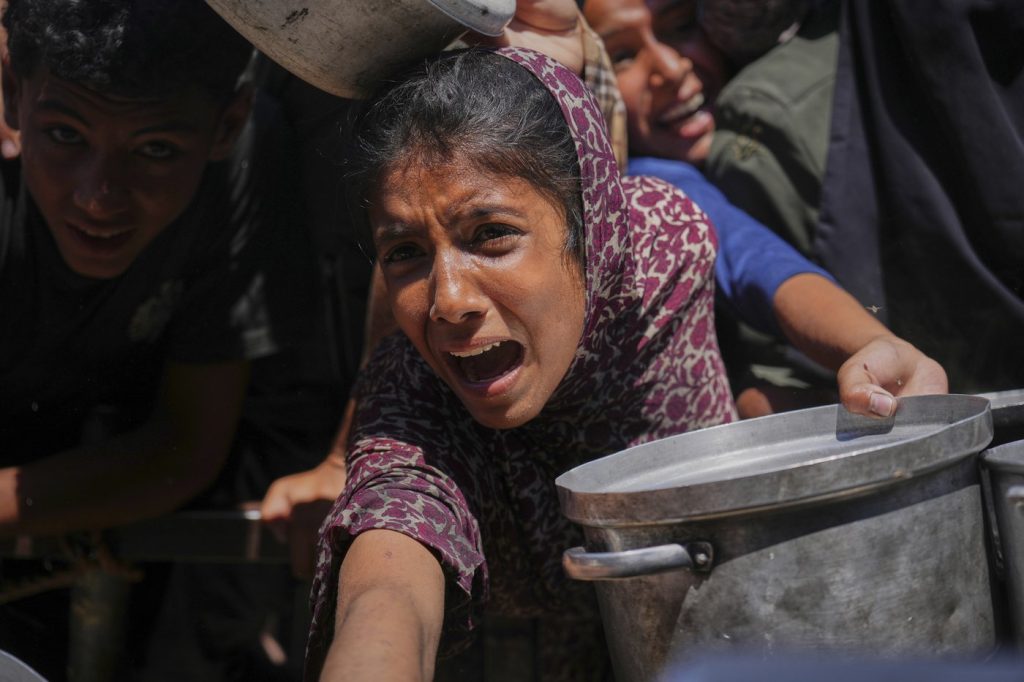TEL AVIV, Israel – A U.S.-backed organization, the Gaza Humanitarian Foundation (GHF), is poised to begin aid distribution in Gaza shortly, despite facing significant opposition from the United Nations and many humanitarian organizations, as well as the recent unexpected resignation of its executive director, Jake Wood. GHF is positioned to take over the distribution of humanitarian aid from U.N.-led efforts that have been active in Gaza since the outbreak of war in October 2023.
This new system will limit food distribution to a few centralized hubs secured by armed contractors. Currently, four hubs are being established close to Israeli military positions, with three located in the far southern area of Gaza, where there are few Palestinians. GHF announced that it plans to commence distribution as early as Monday, stating, “We will not be deterred. Our trucks are loaded and ready to go.” The Foundation aims to assist over 1 million Palestinians by the end of the week, amidst a population of approximately 2.3 million in Gaza.
Jake Wood, who led the initiative, cited concerns over the organization’s lack of operational independence as his reason for stepping down. The Israeli government has demanded an alternative system to prevent Hamas from diverting humanitarian aid, a claim that the U.N. and various aid groups dispute. They argue that the new mechanism is a violation of humanitarian principles and lacks efficacy.
Israel has blocked the entrance of food, fuel, medicine, and other essential supplies into Gaza for nearly three months, exacerbating the humanitarian crisis in the region. Recently, Israel began allowing a limited influx of aid but insisted that it only be distributed by GHF when the organization becomes operational. The Hamas-run Interior Ministry has warned Gazans against cooperating with GHF.
The GHF, which officially launched earlier this year, consists of American security contractors, ex-military personnel, and humanitarian aid officials. Despite naming various high-profile candidates, including former U.N. World Food Program director David Beasley, it remains unclear who will take over Wood's position. Furthermore, GHF has sketchy details on its funding sources, claiming more than $100 million from an unidentified European Union government, while Israel and the U.S. have denied financial involvement.
GHF’s operational strategy includes the establishment of initially four hubs, each capable of serving around 300,000 people. The Foundation plans to increase the number of hubs and expand to eventually serve 2 million people within 30 days, although most of the displaced population resides in northern Gaza, quite far from these hubs. The aid will be transported in armored vehicles by private subcontractors, providing an added layer of security against potential aid disruption.
Critics, including the U.N. and other humanitarian organizations, continue to express concerns regarding the new distribution plan, alleging it could be manipulated to meet Israeli military goals. They fear that the system will expose vulnerable populations to forced displacement and violate international humanitarian laws. Jake Wood, in a correspondence to Israeli authorities, indicated that the existing U.N.-led system would continue to provide food in parallel with GHF until at least eight hubs were operational. However, this agreement has not been confirmed by Israeli officials.
Furthermore, aid groups argue that GHF’s plan is unnecessary given that the U.N. has successfully managed to meet the needs of Gaza’s populace. UNICEF spokesperson James Elder emphasized the urgency of continuing established systems rather than complicating aid delivery with new, untested structures. The GHF's proposal to serve meals containing 1,750 calories falls short of the 2,100-calorie guideline set by international aid standards, amplifying concerns regarding the adequacy of food provided to those in need.
In summary, while the GHF aims to commence aid distribution imminently, significant hurdles remain in the form of opposition from the U.N. and humanitarian organizations, logistical challenges regarding the location of aid hubs, and the ongoing struggle for independence in operational execution amidst a politically charged conflict.











